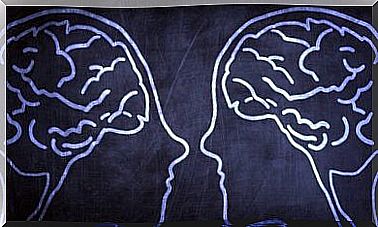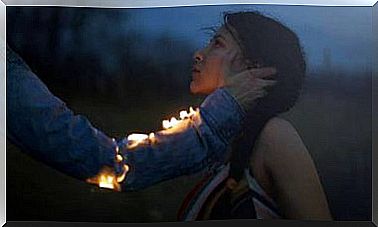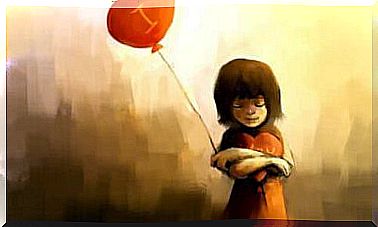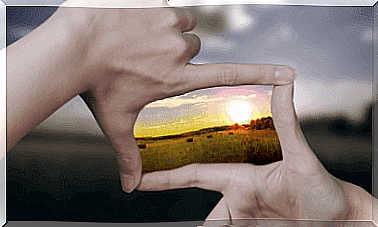Hypophobia Or Fear Of Horses: Causes And Treatment
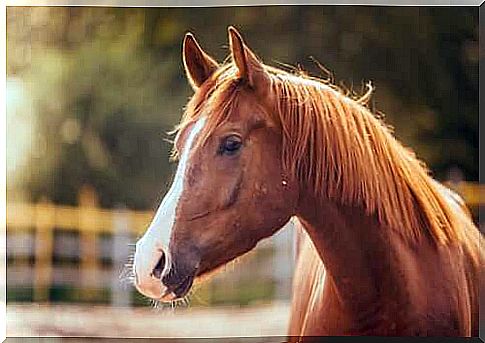
The fear of horses does not seem very common, but there are people who feel an intense fear of these creatures. The fear is such that they even have anxiety attacks. In the latter case, we speak of hypophobia.
Being afraid is a natural response. In an evolutionary sense, fear has helped us save ourselves from certain dangers. It is therefore not abnormal to feel fear in front of certain animals.
Horses, who for many are beautiful and noble beings and a symbol of strength, do not usually surround us on a daily basis. In this context, the lack of knowledge about them is at the origin of this intense fear that some of us experience. However, phobias are irrational fears: they do not indicate a real threat.
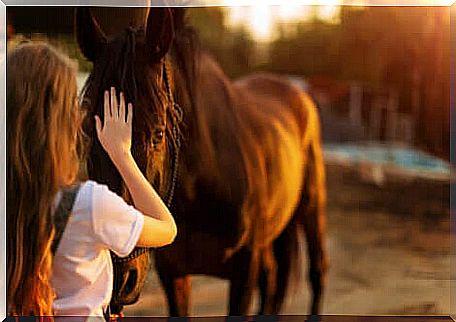
What are the symptoms ?
As with any phobia, fear of horses generates an anxiety reaction. The most common symptoms are sweating, tremors, headache, nausea, dizziness, rapid heartbeat, hyperventilation, or even vomiting.
In order for a person to be considered to be suffering from hypophobia, it is necessary that his symptoms, in addition to exaggerated fear, have been felt for at least six months. These symptoms usually occur in the presence of the animal or just thinking of them.
In other words, a person with an intense fear of horses may be greatly affected just by looking at a picture of horses, or hearing a story from someone interacting with them. Depending on the experience of each person, the fear will be more or less great in the face of different stimuli.
The fear can thus spread to other experiences. An example: a person who suffers from hypophobia sees the representation of a horse on a merry-go-round, and because of this, he is unable to go to an amusement park.
Since it is not common to find horses on a daily basis, this phobia does not generally influence the quality of life of those who suffer from it too much. However, the person will try to avoid all the circumstances in which there is the possibility of meeting a horse.
The origin
Generally speaking, phobias develop from traumatic experiences related to the object of fear. In this case, for example, it could be a fall or a kick. This experience can also be that of another person. In this case, the fear arises from a recounted experience or from having observed this experience lived by someone else.
Also, as with other phobias, fear of horses can be inherited. This means that a person can suffer from hypophobia because they learned from their father or mother that horses are a danger. Thus, since childhood, the person has developed avoidance behavior and an idea of danger concerning horses.
Phobias can also result from a previous anxiety disorder that translates fear and the feeling of danger to many stimuli. Finally, from a phylogenetic point of view, it is possible that the fear of some animals corresponds to a legacy for survival, even if many other people do not feel this fear.

How is hypophobia treated?
As with any other phobia, three lines of action are generally taken to treat the phobia: cognitive restructuring, systematic desensitization, and relaxation techniques. The first focuses on configuring beliefs about horses in a more adaptive and sometimes realistic way.
Systematic desensitization focuses on the gradual exposure of the person to the stimulus of the phobia. First, a list of all horse-related events that the patient is afraid of should be made.
Then the items in the list are ordered according to the degree of anxiety they generate. Once completed, accompanied by training in relaxation techniques, the person will be exposed to stimuli based on their position on an emotional intensity scale.
You have to work one element at a time. Once the patient can think about it without feeling fear, it will move on to the next. This technique is very effective since it is based on elements that the patient himself has chosen. It can finally allow the latter to approach a horse and touch it, or even ride on it.
In any case, to overcome fear of horses or another animal, it is better to consult a professional psychologist. Psychological intervention will significantly reduce or even end fear. It will also provide the patient with resources against other phobias.





